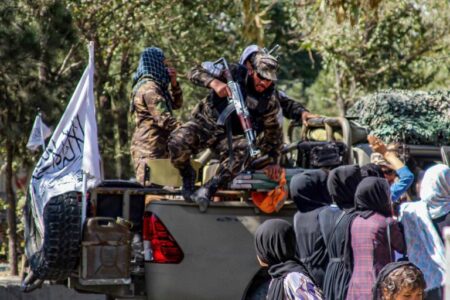
The deadly attack on students in Afghanistan’s capital has brought a wave of protests
The deadly attack on students preparing for exams in a packed hall in Afghanistan’s capital has brought a wave of protests, with young women appearing to lead the cries for justice despite the risks of speaking out in a country controlled by the Taliban. Female students in several provinces have protested over the Friday attack on a higher education center in Kabul that killed more than 50 people and left scores more injured.
The vast majority of the victims of the attack were young women and girls, according to the United Nations office in the country and officials from the KAAJ Higher Educational Center that was hit by the suicide bombing.
The attack struck Kabul’s western Dasht-e-Barchi neighborhood, which is heavily populated by members of the Hazara Shitte Muslim ethnicity. Afghanistan’s Hazaras have been targeted for years by the ISIS branch in the country and the Taliban, both of which view Hazaras as heretics. Many people consider the ongoing attacks against the community acts of genocide against Hazaras, one of the largest but most oppressed ethnic groups in Afghanistan.
In recent years, Hazaras have been subjected to a series of massacres, including previous attacks in Dasht-e-Barchi, targeting wedding halls, hospitals, sports centers, schools, education centers, and mosques.
The protests, led in most cases by women, saw people take to the streets over the weekend chanting slogans including, “Security is our right! Education is our right! Stop genocide!”
On social media, the Twitter hashtag “StopHazaraGenocide” garnered more than 1 million shares and was used by several members of Afghanistan’s former government, which collapsed in August 2021 as the Taliban stormed back to power.
“We should admit our Hazara people have been killed many times in a systematic and purposeful way in places of education, health, sports, and mosques,” former vice president Abdul Rahid Dostum tweeted. “We have witnessed the massacre of Hazara schoolchildren many times.”
One of the biggest protests, Monday in Mazar-e-Sharif, the capital city of the northern Balkh province, was led by female university students. Like every other protest in the country since the hard-line group’s takeover, it was met with a swift, armed response by Taliban security forces.
Videos on social media appeared to show Taliban forces locking many female students inside a dorm to prevent them from joining the protest.
“Silence is betrayal,” chanted women in one video as they attempted to break a locked door to get out. Other women who made it onto the streets of Mazar-e-Sharif changed: “We are innocent, don’t kill us!”
“When you lock students in their dorms to silence them, it shows how scared you are of the women’s voices,” said Heather Barr, women’s rights director at the New York-based group Human Rights Watch, in a tweet that included the video.
Protests in Herat and Bamyan provinces on Sunday, also in solidarity with Hazara students killed in the attack on the KAAJ center, were also set upon by the Taliban. Armed members of the group beat women, fired into the air and threatened students with warnings that their university would be turned into a mosque if they didn’t stop, according to one female protester.
Videos shared on social media appeared to show an armed Taliban member grabbing a woman by the shoulder and pushing her away, and another pointing a handgun at the protesters with his finger on the trigger, issuing threats.
A protest in the capital of Kabul also turned violent when Taliban forces fired shots into the air to disperse the demonstrators. One of the women who attended the protest, Parwin Nikbin, told CBS News the Taliban had beaten people there, including one who had to be hospitalized.
“They used [rifle] butt-strokes and stun guns against us,” Parwin said. “They were very brutal and threatened to kill us if we didn’t stop. We want our rights. We want our security rights. What are you killing us for?” Parwin demanded.
The Taliban officially banned protests in Afghanistan after retaking power more than a year ago, but brave women and girls have continued to hold protests despite the risk of arrest or violence to demand their rights.
“Disturbing scenes in Kabul today of women — calling for greater protection of their communities after Friday’s college attack in Hazara area — being met by yet more violence,” the U.N. office in Afghanistan said, urging the Taliban “to safeguard rights of all Afghans & stop using weapons to prevent right of peaceful protest.”
In the Dasht-e-Barchi neighborhood, a banner hung by the families of two female victims of Friday’s bombing was still hanging this week.
“Both dreamed of studying engineering to build, but their dreams remained unfulfilled,” reads the banner. It adds a call for the young women’s classmates to carry on with their educations despite the risks, and to fulfill their “unfinished dream.”
Source: msn





